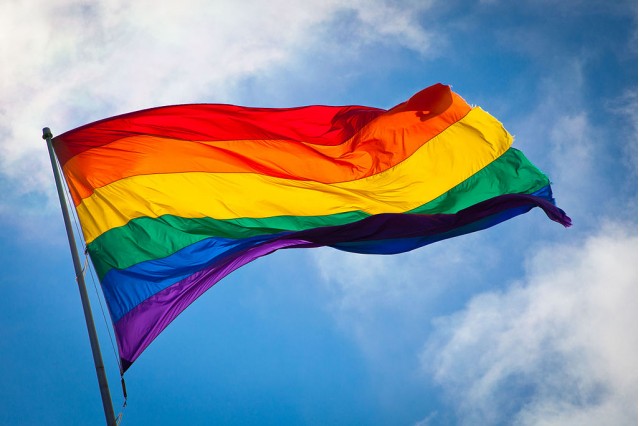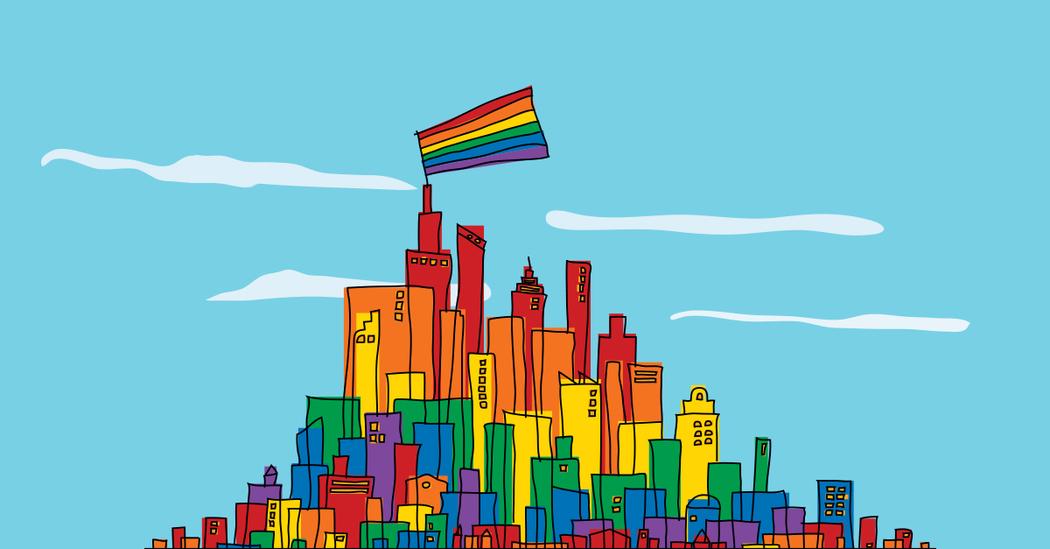Since the beginning of civilization, sexual minorities including homosexuals, transgenders, and bisexuals, have been considered a social taboo. However, in recent days numerous social movements are advocating for LGBT rights, and sexual minorities are now considered as a part of society in a considerable number of countries or cultures. Moreover, the act of ‘coming out’ to the public about one’s sexual orientation or sexual identity through SNS is not only more frequent nowadays but has also become trendy. Yet, the subject of LGBT still remains at the center of a heated debate.
 |
| Image from Weird Scholarships |
LGBT, a Community of Sexual Minorities.
The term ‘LGBT’ was first introduced in the 1990s, when it was adopted as a self-designation by sexual minorities. It expresses a group of sexual minorities whose sexual identity, orientation or practices differ from the majority of the surrounding society. More specifically, LGBT is an acronym for lesbian, gay, bisexual and transgender. The LGBT rights movement was also recognized by society in the 1990s and understandably this new concept for sexual orientation has resulted in many misunderstandings and rumors regarding the LGBT community.
So what are the rumors and what is the truth?
- Homosexuality is not a mental disease.
It’s a well-known scientific fact that homosexuality has no connection with mental disease. The APA, American Psychological Association, announced in 1970 that homosexuality can’t be classified as a mental disease and other global health organizations such as WHO, World Health Organization, agreed with this announcement in 1990.
2. Can homosexuality be inherited by a child when raised by a homosexual parent/s?
In 2013, the AAP, American Academy of Pediatrics, released a statement saying that homosexual parenting doesn’t seem to have any negative influence on children. According to their analyses, other factors, such as parent-child relationship, and socioeconomic status, play more important roles in child outcome rather than the sex orientation of a parent.
3. Is HIV (Human Immunodeficiency Virus) a gay disease?
On June 5th, 1981, the first official reported a case of the HIV virus was published by the CDC, Center for Disease Control. In this report, five gay men who had sexual intercourse with other men were infected with HIV virus. Furthermore, according to a CDC report in 2009, 61% of new HIV patient are men who had sexual intercourse with other men. However, contrary to the rumors, HIV does not only affect the gay community but can also affect anybody, regardless of sex, ethnicity, or sexual orientation. Plus, without sexual intercourse, an individual can also be infected with HIV during giving birth, blood transfusions, breastfeeding and sharing needles or syringes with an infected person. Without a doubt, homosexuality plays an important factor in HIV, but it can’t be identified as a gay disease.
 |
| Image from TED |
LGBT in global aspect
Today, most of the world’s governments are embracing their LGBT communities with open arms. For instance, LGBT marriage is now legal in 18 countries, including the Netherlands, the first country to allow LGBT marriage, in 2001. The positive results from studies on homosexual parenting have also led to the allowance of LGBT parenting and LGBT adoption in 26 countries, the US being the first country to legalize LGBT adoption rights, in 1993. Plus, sex-change surgery is allowed in Taiwan and Iran, along with LGBT military service. In the US, the “Don’t ask, don’t tell” policy allows military service for members of the GBT (gay, bisexual, and transgender) community if they keep their sexual orientation or identity to themselves.
How about the religious response?
For many centuries, the Catholic Church has opposed the LGBT community, often calling it a sin. These days, the Catholic Church no longer sees homosexuality as a sin, but still considers it to be an “objective disorder” and holds a very negative attitude against the LGBT community. For instance, the ordination of a priest who is homosexual or has an affection towards homosexuality is strictly prohibited. However, unofficially, there are some individuals or Catholic groups, such as “Dignity New York” who have supported gay marriage since 1972.
In the case of Islam, they consider homosexuality as a sin and a punishable crime. In regions where Islam is not only a system of belief but also a legal system, such as Afghanistan, Iran and Jordan, the homosexuality is punished with the death penalty. On the other hand, Buddhism has no fixed dogma towards the LGBT community. Therefore, the opinions on homosexuality vary according to regions and persons.
How does society react to LGBT?
In international societies, especially in Western societies, LGBT communities are fairly well accepted. For instance, according to the Pew Research Center in the US, only 19% of parents said they will act negatively if their children are homosexuals, and around 55% of Americans support gay marriage.
Furthermore, despite the negative reaction first directed towards the LGBT community, homosexuality is becoming one of the norms in international societies. Such social change is also observable with the frequent use of the rainbow flag on the Internet and many social network sites (SNS). The rainbow flag first symbolized peace but was adopted by sexual minorities and pro-LGBT movement to represent themselves. Therefore, throughout the internet the rainbow flag is used by sexual minorities and by pro-LGBT to show their support for the LGBT community. Similar to the rainbow flag, “#LGBT” was first used by individuals coming out to the public on Facebook or Twitter. Soon, “#LGBT” was used by many people to show their support for the LGBT community or to ‘come out’ to the public.
How is the LGBT community treated in Korea?
At the moment, the Korean Government has yet to publish an official opinion or reaction towards the LGBT community. However, when Kim Jho Gwangsoo, a well-known movie director, requested the Korean government to recognize his gay marriage, it was denied by the head of the Seodaemun District, in 2013. Incidents such as this are not rare in Korea. Many married gay couples face legal discrimination. They are excluded from the right to adopt or the guarantee of health rights. Without these legal rights, they don’t even have any right to consent to an operation for their partner, even in urgent cases. Although there have been some public and administrative movements in support of the LGBT community, such as a debate forum ‘Homosexuality, Idea of Freedom’ held by the Seoul Metropolitan Government, there still are great opposition against the LGBT community.
In Korea, religion plays the most important role in anti-LGBT sentiment. They don’t only criticize homosexuality but also have very active movements against pro-LGBT groups, such as the World Council of Churches (WCC). For instance, the World Evangelical Alliance (WEA) strongly criticizes the WCC for supporting the LGBT community and even calls them an anti-Christian group. Furthermore, the Foundation of Jesus in Korea held an anti-homosexual demonstration in front of Seoul City Hall for 11 months, in 2015. These examples are only a few cases of many ongoing anti-LGBT religious movements in Korea and the discrimination against the LGBT community is omnipresent throughout religion in Korea.
Socially, the LGBT community still remains as a social taboo. Although more people are ‘coming out’ through social media, the rejection of a homosexual remains as a strong social norm. According to Myeon-jin Kang, the head of the Organizing Committee of the Korea Queer Festival, “Because Korea is a very conservative country, it’s very difficult to come out to the public about one’s sexual orientation. In the worst cases, you can easily get rejected and isolated from your family, job, neighbors, and country.” As he said, in 2014, Seoul City launched a pro-LGBT policy, which included an article for the ‘prevention of discrimination according to sexual orientation or sexual identity’. But it soon encountered vigorous opposition by 224 civic groups and was soon abandoned.
As people are guaranteed the same rights despite having differing skin colors, origins, or gender, sexual orientation also shouldn’t be a factor for discrimination. Yet in Korean society, the influence of religion remains strong, and the ongoing battle between pro-LGBT and anti-LGBT groups will continue on for some time. Therefore it’s necessary for the government and society to stop avoiding this problem and work together to resolve it.
조상현 jeremycho318@gmail.com
<저작권자 © 인하프레스, 무단 전재 및 재배포 금지>

![[보도] 제43대 총학생회 후보자 공청회 개최돼](/news/photo/202404/11686_5015_2626.png) [보도] 제43대 총학생회 후보자 공청회 개최돼
[보도] 제43대 총학생회 후보자 공청회 개최돼
![[보도] 제43대 총학생회 후보자 공청회 개최돼](/news/thumbnail/202404/11686_5015_2626_v150.jpg)
![[보도] 총학생회장 선거 열려···학생사회 대표자는?](/news/thumbnail/202403/11668_5014_266_v150.jpg)
![[보도] 무전공·계열제 논의···학생은 어디에?](/news/thumbnail/202403/11666_5011_2238_v150.jpg)
![[보도] 인하 70돌, 다양한 행사 이어져](/news/thumbnail/202403/11663_5009_165_v150.jpg)
